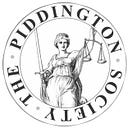Hannah McGlade on Reconciliation
“There is a fire for justice that runs in my blood.”
At The Piddington Society, we like to ask people about their views on topics they are passionate about.
Hannah McGlade, a Noongar woman, is a human rights lawyer and academic.

She was the first Aboriginal woman to graduate from a West Australian law school in 1995 from Murdoch University. She has worked and written on a range of Aboriginal issues in the law, including children’s issues, incarceration, disability, mental health and discrimination.
McGlade won the Stanner Award for her book Our Greatest Challenge, Aboriginal children and human rights.
McGlade is Senior Indigenous Research Fellow at Curtin University, Member of the Mental Health Tribunal and Member UN Permanent Forum for Indigenous Issues. She was previously the Chair of Aboriginal Family Law Services (WA).
In recognition of her qualifications and expertise in human rights law, in 2016 Hannah was appointed the Senior Indigenous Fellow of the UN Office of the High Commissioner for Human Rights. In 2019 she was appointed Member of the UN Permanent Forum for Indigenous Peoples 2020–2023, and in this role she will be representing Indigenous people of the Pacific region.
In what areas are you seeing progress on Indigenous issues in the law? And what areas are lagging?
I don’t think we have a lot to be proud of in Australia in respect to Aboriginal people in the law.
The Mabo decision happened in the 90’s and native title was a long overdue recognition that is also based on an idea that Eurpoean title was stil superior to Aboriginal title and Aboriginal sovereignty. Still it has given people a foot in the door in terms of land negotiation rights and economic opportunity, although I hear questions asked about the impact that is still having.
The major issue is that Aboriginal peoples fundamental human rights, recognised by the UN Declaration on the Rights of Indigenous Peoples, are still being denied and Aboriginal people are suffering and sometimes dying from a myriad of human rights violations.
What advice do you have for non-Indigenous lawyers in supporting Indigenous lawyers in the profession?
Australia doesn’t have to be a country that oppresses Aboriginal people, non-Indigenous lawyers have a choice and a real opportunity a to contribute to racial equality and human rights in this country.
Be humble and treat people with respect and equality.
Listen deeply and support us in our journey of self determination, justice and healing.
What inspired you to study and work in law?
I studied law in the early 1990’s knowing that Aboriginal people had and were being subjected to so much abuse and discrimination.
I wanted to make a difference and saw the law as having potential to address and improve our situation as First Nations peoples.
Aboriginal people have always resisted colonisation and racial injustice and the legal system has been an important tool to subdue resistance, but it can also be used to fight for justice.
Our fight for justice remains as strong as ever, especially confronting systemic and structural forms of discrmination and state based violence in breach of human rights laws.
Outside of law, what does your life look like?
I’m enjoying life outside of law and attending a guitar course at ABMUSIC, Aboriginal creative arts was always an important part of our culture and healing ways.
I also love to cook and am a foodie at heart.
And of course I have a family, some grown up some not so grown up who are all keeping me busy.

What do you wish more people knew about your work?
There are a few people that know of my work in the United Nations human rights sphere.
I’m proud to have played a role in human rights law for Aboriginal people.
This year I was appointed to the UN Permanent Forum for Indigenous Issues and attended a meeting in Finland where we were hosted by the Sami people and met all Sami Presidents.
I wish people knew more about the Sami parliament, which is a statutory body that ensures Sami people a legislative right to negotiation in relation to Sami matters. We should not be accepting anything less in Australia as we develop the representative body.
What does justice mean to you?
I live and breath the fight for Aboriginal justice as a Noongar yorga of the Bibbulman Nation.
There is a fire for justice that runs in my blood, and I believe that we have a sacred duty and responsibility to care for all our people and never forget who we are as Noongar people.

